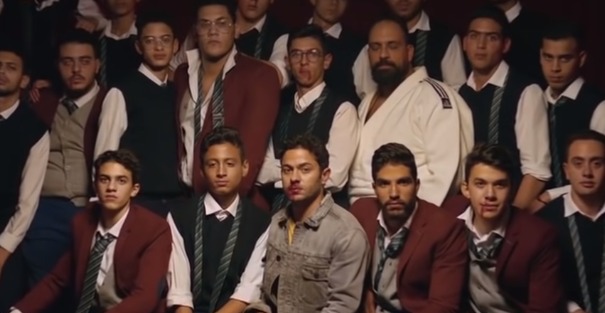The National Council for Women (NCW) has demanded that Google ceases the broadcast and promotion of the Salmonella song – which was released by Tameem Youness on YouTube on the first day of 2020. The NCW based its demand on the Anti-Cyber and Information Technology Crimes law, according to the sentence 175/2018 of the Egyption Panel Code.
The statement said
that the song “calls for bullying and incites violence against women,
in addition to including words that are deemed immoral which falls under
the crime of insulting and slandering through communication sites.”
Moreover, it classified YouTube as a traditional media platform, which
must adhere to the Press Code of Ethics of 2017.

Hassan Alazhary, a lawyer from Freedom of Thought and Expression Law Firm (afte),
said that “estimating the extent of the violation or crime in the media
is a matter for the judge.” Although, he further explains, “the penal
code defines insulting crimes and defamation offenses only. Also, the
Anti-Cyber and Information Technology Crimes law established specific
controls to implement the blocking or content releasing process.”
Since the NCW complaint to Google is merely an informal request that
the company is not obligated to enforce, it seems it would not have an
effect on the song itself. “Some requests may not be specific enough for
us to know what the government wanted us to remove, and others involve
allegations of defamation through informal letters from government
agencies,” Google clarified in its last transparency report of Egypt.
Additionally, the report highlights that the “court orders frequently
included with requests do not compel Google to take any action.”
This complaint comes soon after the molesting case in Mansoura»,
in which the Council failed to take action to help the molested girl or
attempt punishing the men responsible. For this reason, we hope that
the presence of the Google’s new office in Egypt does not affect their
work in order to gain the government satisfaction.
Blocking and exclusion is an approach taken by the Egyptian
government and its apparatus, and it is accompanied by restrictions on
media institutions and detentions of journalists, women, and human
rights defenders. The Egyptian authorities have been discreetly blocking
as many as thousands of websites during the last year via their IP
addresses – including those that are not targeted – according to an
“afte” report.
Irrespective of whether Youness advocates for women’s issues or
incites violence towards them, or if he excludes himself from the type
of men he’s targeting in the song, any call for blocking content falls
under the category of censorship and infringement of freedom of
expression on the web. The best way to target these productions can
actually be achieved with more freedom in publishing and expressing and
advocating women’s issues, rather than withholding any “patriarchal”
content.
SMEX condemns this request from the Egyptian government agencies represented by the NCW, because it attacks the freedom of publishing on the web and promotes self-censorship. This is the approach taken by many governments in our region, who see it as an easy and effective solution to direct the public opinion.



